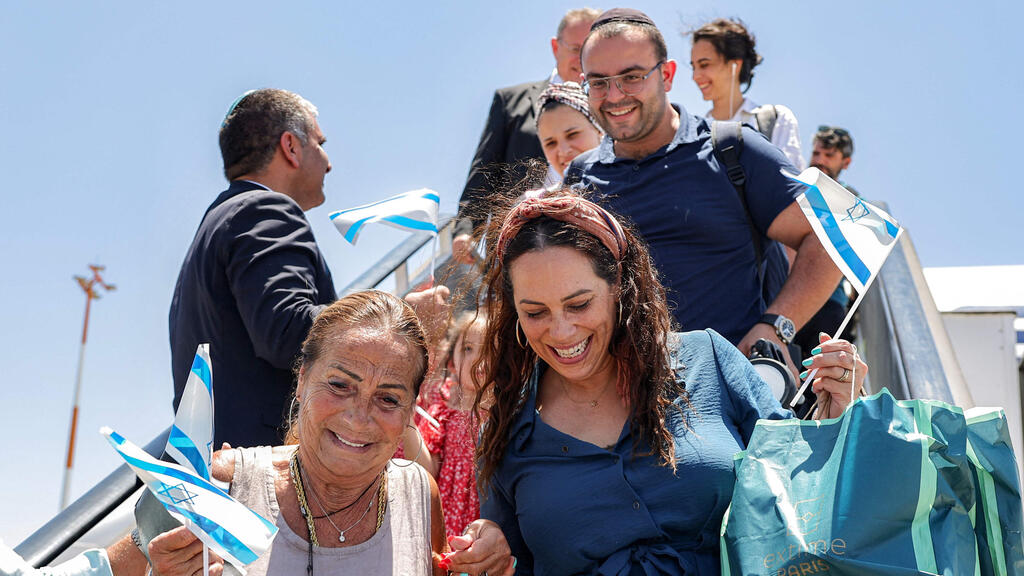Of that total, about 7.76 million are Jews and others (78.5%), and 2.13 million are Arabs (21.5%). Another 260,000 are foreign residents, bringing the number of Israeli citizens to 9.89 million.
2 View gallery


New immigrants arriving at Ben Gurion Airport
(Photo: Jack Guez/ AFP)
Over the past year, the population grew by roughly 101,000, a 1% growth rate — down from 1.2% the previous year and 2% the year before that. The CBS attributed the drop to a change in the way emigrants and returnees are defined following the 2022 census, as well as to negative migration.
In 2025, about 28,000 people left Israel’s population balance. Some 79,000 Israelis emigrated abroad, while 21,000 returned after living overseas. About 25,000 new immigrants arrived, along with 5,000 through family reunification.
Natural growth accounted for most of the increase. Around 179,000 babies were born this year, while 50,000 people died. Last year saw 183,000 births and 55,000 deaths.
Religious breakdown and life expectancy
Among Israel’s Jewish population, 42.7% identify as secular, 33.5% as traditional or observant (most “not very religious”), 12% as religious and 11.4% as ultra-Orthodox. Life expectancy is 81.4 years for men and 85.5 years for women.
Cancer accounted for 23.5% of deaths, and heart disease for 12.2%. About 17% of Israelis aged 21 and over smoke daily.
The CBS found that 91.1% of Israelis are satisfied with their lives — including 92.4% of Jews and 85.5% of Arabs. More than half (50.5%) believe their economic situation will improve in the coming years, 29.9% expect it to remain unchanged and 11.4% expect it to worsen.
About 62.7% of households live in owned homes, with 34.3% still paying mortgages. Monthly household consumption expenditures average 17,600 shekels ($4,600), with 24.8% spent on housing, 18.6% on transport and communications and 18% on food.
Nearly all households (98.2%) own at least one mobile phone, and 76.7% have a computer.

